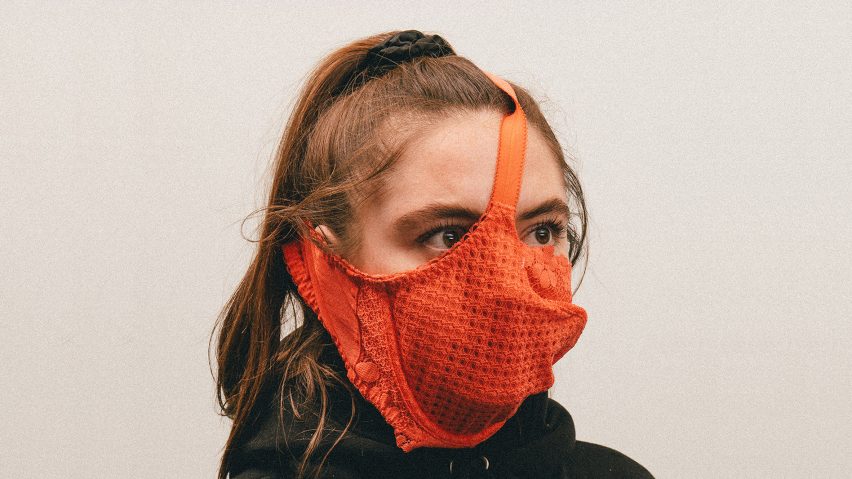Underwear, vegetables and carrier bags could all be used in the fight against coronavirus, suggests artist Max Siedentopf.
Siedentopf, a German-Namibian designer based in London, has created a series of provocative images showing everyday items being used as protective face masks.
Global demand for surgical face masks is growing, as people try to protect themselves against the virus. However doctors don't advise using them for protection as research shows they have limited use in preventing the spread of viruses.
Siedentopf's project, titled How-To Survive A Deadly Global Virus, suggests a variety of objects that could be used as alternatives to face masks.
"Since the virus is currently spreading globally, the series offers handy solutions how you can use simple everyday objects to protect yourself," he said.
The series consists of 12 photographic portraits, each featuring a different mask.
Pants and a bra both feature, along with a sneaker that is tied around the face with shoelaces. There's also an image showing a man with a sanitary towel stuck to his face.
Plastic objects used as masks include a large plastic water bottle worn around the head and a milk bottle that covers just the mouth and nose, while more biodegradable options include a lettuce leaf.
There's even an image showing a women wearing a tent over her head.
Siedentopf was inspired to create the series after seeing images of people wearing home-made masks going viral on social media.
"People shared photos of alternative solutions to the conventional air mask, using objects such as orange peels, bras or water bottles," he said.
Siedentopf has courted controversy before. In 2018, he installed binoculars on a viewing balcony at Tate Modern in London in protest against residents of the neighbouring Roger Stirk Harbour + Partner's Neo Bankside development, who had taken the art gallery to court over privacy issues.
The outbreak of coronavirus originated in Wuhan, China, on 31 December. Efforts to contain the virus failed and it has now spread worldwide, with cases reported in Europe, North America and the Middle East.
Approximately 1,700 people have died after contracting the deadly virus and it is being treated as a global emergency by the World Health Organization.
Design shows in China were postponed due to the outbreak and a new hospital has been built in Wuhan to treat patients.
Siedentopf's proposals do not provide effective protection against coronavirus. Wearing a mask for too long could even put a wearer at further risk, as it only traps virus particles, rather than deactivating them. Masks are considered more useful to people who are already sick, as they prevent germs from spreading.
Instead, the World Health Organization recommends washing hands regularly, discarding tissues after each use and maintaining distance from other people. The WHO has published advice on basic protective measures against coronavirus on its website.
Update: Following criticism of this project Siedentopf apologised for any offence the series caused.

